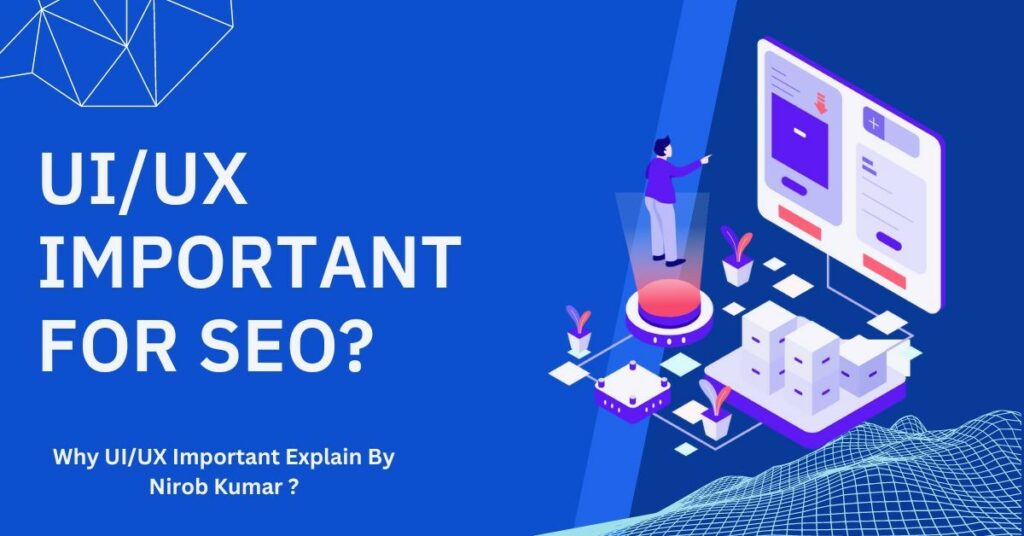If you feel like the SEO playbook stopped working overnight, you are not alone–and you’re not wrong.
In 2025, search engines are no longer just information directories–now they are decision engines. The emergence of generative search and instant answers has dramatically changed the pathway to visibility, and this will no longer be a glitch–but a baseline. Traditional traffic funnels are decreasing as we see voice assistants, hyperlocal queries, and zero-click results as the new touch-points.
In fact, AI-driven tools influence nearly every facet of SEO, from content creation to predicting search intent. The automation of processes has now become commonplace among e-commerce brands trying to keep pace.
One surprising fact? Over 65% of all Google searches now end without a single click—reshaping how we define success in SEO.
Before we delve into SEO trends in 2025, let’s find out how AI will influence SEO and rankings.
Table of Contents
AI Race and SEO
The AI revolution is rapidly transforming search. The headlines show Google’s growing urgency; CEO Sundar Pichai has been telling employees, “the stakes are high for 2025,” as ChatGPT has grown over the past year.
We find ourselves in an era of generative AI, which changes how users find information–brands must recreate visibility. For digital marketers and SEO specialists, the challenge won’t be ranking any more; it’s being the entity AI chooses to surface. This means optimizing for structured data, enhancing user experience, and creating a clear and consistent narrative about the brand.
While search evolves into a more predictive and conversational ecosystem, the early adaptors are positioned to lead the next chapter of discoverability and relevance in the digital space.
Let’s discover the top SEO trends in 2025 and learn how to optimize your digital strategy for better search results and search engine rankings.
AI as Helpful or Terrible Assistant
AI is prevalent in the SEO world and serves as a double-edged sword by delivering speed and scale. Overreliance and excessive use of AI tools without first verifying the information can lead to loss of originality and critical thinking. Most tools, if they are not customized, learn from the same public datasets. For example, if all the marketers start using the same datasets for the typical services, it might not provide the rich results. This homogeneity is a bad thing because lack of differentiation can hurt your visibility in competitive spaces.
Moreover, many of these AI tools function as ‘black boxes,’ which means you provide inputs, receive outputs, but don’t necessarily understand and justify the logic that turns your input to output.
The real SEO value is achieved by combining AI efficiency with human input. For example, you can research and collect data on your own using Google Analytics and customer feedback. AI will enhance your data collection and offer you tailored strategies to meet your SEO needs.
In 2025, the real chance to win in your SEO strategy is to adopt a hybrid approach (AI + human).
Community Content
One of the impactful shifts in SEO in 2025 is the growing presence of online community content in search results. After the August 2023 core update, Google’s visibility for communities like Reddit and Quora has increased significantly , with Reddit taking the distinction of the third most visible site in Google SERPs.
Traffic from Google to Reddit also increased by four times. This is a trend of both push (by Google) and pull (by users). Google is now clearly rewarding content driven by and discussing real community members, especially for queries formulated as questions.
While users are now interpreting searches better by adding words such as “Reddit” to find more authentic, personal, and therefore more nuanced answers from real people.
For digital marketers, it’s time to engage in these communities to collect data and promote themselves as thought leaders. Contributing to these forums will not only emerge businesses as thought leaders but also improve their organic visibility as community-driven content continues to dominate the SERP.
Note: 49% of marketers report that organic search has the best ROI of any marketing channel—Search Engine Journal
Experience-Based Content
In 2025, Google’s focus on Experience—the newest “E” in E-E-A-T—has become a must for SEO success. With the deluge of AI-generated content, both Google and users are prioritizing content that draws from real-life experiences. And it is evidenced: With a recent leak of a 2024 Google API referencing an “OriginalContentScore,” novelty and authenticity are key factors in rankings.
Users are also showing interest in knowing authentic stories, increasingly opting for forums, reviews, and firsthand experiences, rather than templated blog posts. Therefore, for businesses, the emerging content strategy is to build from authentic, first-hand experience—either from internal experts, customers, or direct field data. SEO in 2025 will reward content based on originality, not repetition. Brands that lead with experience-based content will build lasting visibility and credibility.
User-Intent Search Over Keywords
The future of SEO demands more realistic and original content from businesses that addresses the pain points of the users. In 2025, the success of SEO will largely depend on the user’s search intent rather than focusing solely on the keywords.
Since users now use conversational forms of queries, e.g., asking full-fledged questions, it will change the requirements for SEO success. For this, businesses must focus on the evolving behavior of their target audience and tailor their strategies to answer queries in a more data-driven style.
Moreover, keyword-based strategies are slowly losing their potential in the digital world as unclear descriptions are now not being welcomed with grace. It is best to optimize content for long queries for specificity and relevance to rank higher on the search engine. Search algorithms now prefer the search intent of the users to offer real value and solutions in a more sophisticated manner.
Note: 12.3% of search queries contain a featured snippets —Ahrefs
Voice-Search Will Grow
With the rise of smart assistants like Siri, Alexa, and Google Assistant, voice search is no longer a novelty—it’s a daily habit for millions. The more people speak out about their questions, the more SEO strategies need to change in order to keep up with this new way of searching. Voice searches are longer, more natural, and often in the form of a question. So, traditional short keywords do not work as well.

To stay competitive in 2025, optimize content with more natural and long-tail keywords that mirror the way humans speak. Optimize for featured snippets and direct answers using structured data markup (schema). Prioritize local SEO, ensuring your Google Business Profile is accurate. Including Q&A-style content can also help capture high-intent voice search traffic.
Note: Voice search results contain an average of only 29 words—Backlinko
User-Experience Matters
Google’s ever-changing algorithms continue to prioritize websites that create a seamless, speedy, and outstanding user experience. If your site is slow to load or has a poor design, it will only frustrate visitors, drive up bounce rates, and send Google negative ranking signals.
Your pages should be designed to respond to real questions, lead the user to the next step, and reduce friction along the way.
A clean layout, fast loading time, and prominent call to action buttons are essential and should no longer be seen as optional if a business wants to stay visible on search engines.
For instance, when a local dental clinic revised their homepage design by decluttering the layout, minimizing the sizes of images to load quickly, and ensuring the call to action to “Book Appointment” was above the fold, in a matter of weeks, the clinic saw a decrease in bounce rate and an improved rank in the local organic search results.

Conduct regular audits with tools such as Google PageSpeed Insights or Web Vitals for monitoring and improving the user experience.
Social Signals and Online Reputation
Search engines increasingly recognize social engagement as a marker of relevance. Shares, likes, and comments do not directly affect rankings, but they increase the reach of your content, and achieving this visibility can lead to backlinks, branded searches, and time on page.
Conversely, social media viral backlash or deliberately unresolved complaints can ruin your reputation and appear in branded search. SEO professionals must monitor social media actively, respond to feedback, and stay ahead of potential crises to protect search equity.
For example, a beauty brand saw an increase in traffic after their brand’s product went viral on a TikTok skincare tutorial. They took advantage of the viral content by updating their landing page and securing featured snippets on the trending topic. Pro-tip: apply social listening tools to track sentiment and mentions about your brand on social media
Final Thoughts
The SEO landscape is evolving and being reshaped by various elements, including AI, voice search, user-intent search, organic and real experiences, and more. As we’ve discussed all these trends in depth, we have realized that search algorithms now prefer more human and real content based on real experience.
Keyword obsession is dying slowly and gradually while conversational queries are being optimized to offer valuable solutions to the users. In short, SEO is no longer just a technical aspect of marketing; it has become a personal, strategic, and connected way to your audience’s journey.
So, are you ready to future-proof your SEO approach? Partner with EvolveDash, your growth-focused digital marketing and software solution company. Let’s develop an SEO plan that is future-driven.
FAQs
- What is the biggest change in SEO in 2025?
The biggest change is the shift from traditional keyword-based ranking to AI-driven and intent-based search. SEO now focuses more on helpful content, real user experiences, and community-driven platforms like Reddit.
- How does AI affect SEO content strategies in 2025?
AI helps speed up content creation and analysis, but overusing it without human input can reduce quality. A hybrid method—combining AI with expert insights—is proving to be more effective.
- Is voice search optimization really important now?
Yes. With more people using voice assistants, queries are now longer and more natural. Optimizing content to match this pattern helps websites perform better in search results.
- How can businesses benefit from community content for SEO?
Engaging in forums like Reddit or Quora helps build trust. These platforms now rank well in search results, so sharing insights there can improve visibility and credibility.
- What should I focus on to improve SEO ranking in 2025?
Focus on delivering helpful content based on real experiences. Improve website speed, structure, and usability. Keep your business information updated for local SEO. Also, answer real questions clearly using structured data.



















